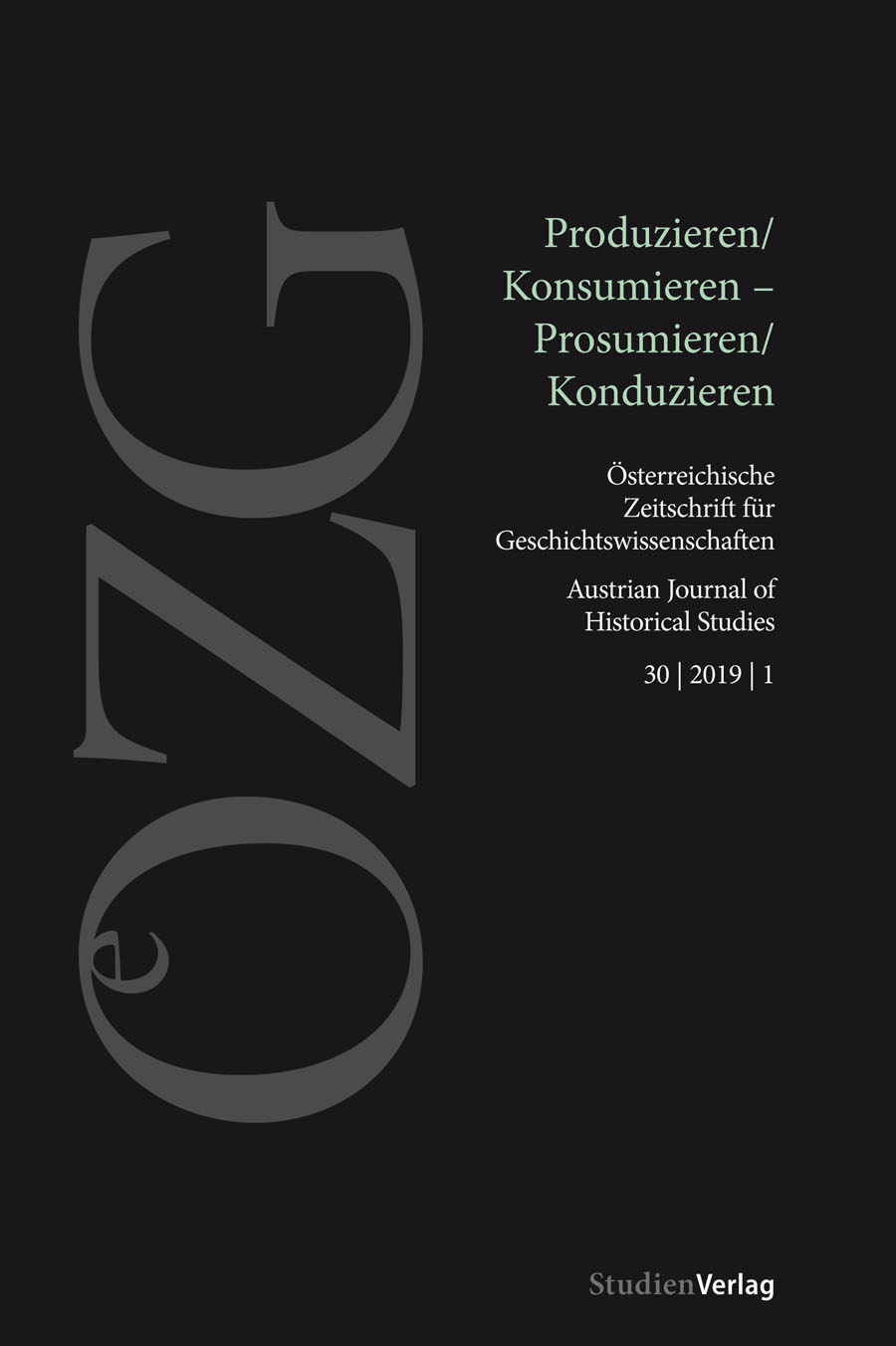Household Production as Prosumption and as an Industry in Twenti-eth Century German Consumer Society
DOI:
https://doi.org/10.25365/oezg-2019-30-1-3Keywords:
consumer society, DIY, prosumption, modes of provision, marketing, GermanyAbstract
This article takes as its starting point the close interweaving of production and consumption in private households in order to re-evaluate make-or-buy decisions and modes of provisions in modern, industrialized societies. It argues that consumer societies are actually “prosumption societies” wherein households combine their own labor, skills and time (production) with what they purchase on the market (consumption) to fabricate a diverse range of products, be it a cake, a sweater, or a new shoe rack. This article starts with conceptual reflections on the subject, and then analyzes instructions such as leaflets and public presentations as attempts to bridge the gap between purchased items such as edible ingredients, tools, or other kinds of materials on the one hand, and the prosumers who use them in their household on the other hand. The last part of the article explores prosumption as a high-profit market with particular marketing strategies during the late nineteenth and twentieth centuries.


